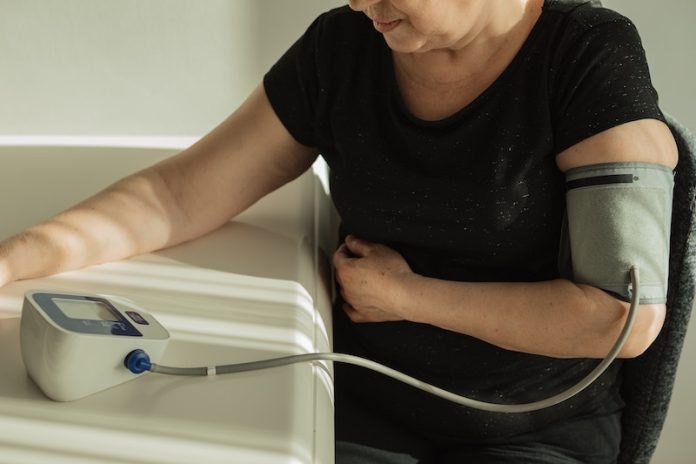
In the last couple of decades, something concerning has been happening: a lot more older folks, especially in America, are having serious problems with high blood pressure, landing them in hospitals.
A Close Look at the Issue
Research teams from Yale University took a deep dive into data spanning two decades to understand what’s been going on with high blood pressure and hospital visits.
Instead of good news, they found a trend that’s quite worrying. Despite lots of work to help people manage their blood pressure better, it seems like especially among older Americans – those 65 and up – the problem is getting worse, not better.
From 1999 to 2019, there was more than a doubling of hospital admissions for extreme high blood pressure among this age group.
This data comes from Medicare, which is a government program that helps older people with their health insurance.
What’s even more alarming is the evident racial disparity: between 2017 and 2019, Black Americans were three times more likely than folks from other racial backgrounds to end up in the hospital due to critical blood pressure spikes. That’s a significant and concerning difference.
The Silent Danger of High Blood Pressure
To understand why this is such a big deal, let’s talk about what high blood pressure is in a simple way. Imagine a garden hose: when water runs through it, it presses against the sides of the hose.
That’s kind of like how blood works in our veins. Blood pressure is how hard your blood pushes against the walls of your veins.
If it pushes too hard for too long, that’s high blood pressure, and it can cause a lot of health problems if it’s not managed.
In the medical world, blood pressure is measured with two numbers. The first, or “top” number, is the pressure when your heart pushes blood out (think: water running through the hose).
The second, or “bottom” number, is the pressure when your heart is relaxed (think: water turned off, but still some left in the hose).
Doctors generally agree that having a top number of 130 or more, or a bottom number of 80 or more, is considered high.
Even though you might not feel sick, if your blood pressure stays high for a long time, it can lead to really serious issues like heart disease, strokes, and problems with your kidneys. So, keeping it in check is really, really important for our overall health.
Bridging Knowledge to Action
This increase in hospital visits in the south is particularly troubling.
It aligns with a phenomenon that some medical experts refer to as the “stroke belt,” which is a group of places in the southeastern part of the United States where more people have strokes than anywhere else in the country.
So, why should all of this matter to you? Well, if you or someone you know has high blood pressure, understanding and managing it is key to avoiding big health problems down the line.
Sometimes, doctors will give you medication to help manage it. But research also shows that simple things like having more plants in your diet or even drinking beet juice can be helpful.
The takeaway from the Yale University research is this: we have a lot more work to do.
Despite all the progress we’ve made in medicine and public health campaigns, there’s still a long road ahead in understanding and managing high blood pressure—particularly for older and Black Americans.
In light of this, it’s vital to rekindle our efforts and dig deeper to figure out why we are seeing these trends and find innovative and accessible ways to ensure everyone has the knowledge and resources to manage their blood pressure effectively.
This isn’t just a statistic; it’s about people’s lives, and it’s imperative we navigate the rising tide of this health issue together.
If you care about blood pressure, please read studies about unhealthy habits that could increase high blood pressure risk, and eating eggs in a healthy diet may reduce risks of diabetes, high blood pressure.
For more information about high blood pressure, please see recent studies about impact of vitamins on high blood pressure you need to know, and the powerful link between high blood pressure and a potassium-rich diet.
Follow us on Twitter for more articles about this topic.
Copyright © 2023 Knowridge Science Report. All rights reserved.



